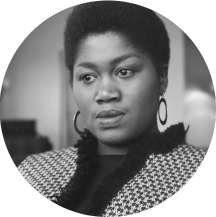
Odetta, hailed as “The Mother Goddess of Folk Blues” by The New York Times, left an indelible mark on the world of folk music for five decades. Her influential career not only showcased her extraordinary musical talents but also paved the way for others, breaking barriers as a woman and an African American in the folk milieu. Born Odetta Holmes on December 31, 1930, in Birmingham, Alabama, she spent most of her childhood in Los Angeles. Classically trained in college, Odetta possessed a versatile repertoire that spanned blues, spirituals, jazz, songs from various folk and popular traditions, and original topical songs reflecting her commitment as a civil rights activist.
Although she occasionally worked the blues club and festival circuit, her blues credentials were undeniable, evident in albums like “Odetta Sings Blues and Ballad,” “Odetta and the Blues,” “Blues Everywhere I Go,” and “Lookin for a Home,” a compilation featuring songs associated with Lead Belly. Her remarkable career included performances in Martin Scorsese’s 2003 “Salute to the Blues” concert, Divas film in Clarksdale, Mississippi, and appearances at the Apollo Theater in Harlem and Blues Foundation events. Odetta, who was once married to blues singer Louisiana Red, enchanted audiences with her magnetic stage presence and powerful voice, captivating listeners whether singing solo or collaborating with symphony orchestras, jazz bands, ballet troupes, opera companies, or all-star musical aggregations. Odetta’s commitment to social justice was evident as she sang at historic events like the March on Washington and the Selma, Alabama March, as well as at human rights and anti-war rallies. She used her voice not only to entertain but also to advocate for change, performing at benefits, tribute concerts, and schools.
Throughout her illustrious career, Odetta collaborated with luminaries such as Harry Belafonte, Dr. Martin Luther King Jr., Nina Simone, Maya Angelou, and Pete Seeger. Her influence extended to artists like Bob Dylan, Janis Joplin, Joan Baez, Rhiannon Giddens, Eric Bibb, and countless others. Honored by U.S. presidents, the Library of Congress, and numerous organizations worldwide, Odetta continued to perform even in the face of declining health. She passed away in New York on December 2, 2008, leaving behind a legacy that transcends music, resonating in the realms of humanitarianism and education.
